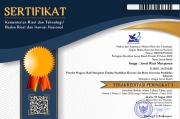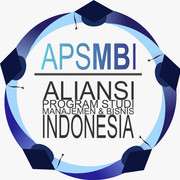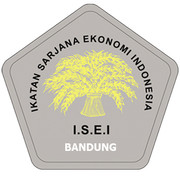Visitor Emotional Solidarity and Planned Behavior Effects on Leisure and Tourism Development in Ghana
Abstract
The study seeks to develop a relationship between Emotional Solidarity (ES) and the Theory of Planned Behavior (TPB) in predicting visitors’ behavioral intentions to attend leisure events in Ghana. ES Scale (ESS) modified with Tourism Impact Attitude Scale was employed. The data used IBM SPSS 25.0 and SmartPLS 3.3.9 for analysis. The hypotheses were explored using PLS-SEM. ES factors significantly positively affect visitors’ attitudes towards tourism development. The TPB significantly predicted the behavioral intentions of leisure event visitors. The study specifically suggests the promotion of tourism development with high perceived behavioral control, individual attitude, and subjective norms.
Keywords
Full Text:
PDFReferences
Adam, I. (2014). Gendered perspectives of leisure patterns and constraints of university students in Ghana. Leisure/ Loisir, 38(2), 181–198. https://doi.org/10.1080/14927713.2014.985475
Adam, I., Hiamey, S. E., & Afenyo, E. A. (2015). Leisure constraints in the university setting in Ghana. Annals of Leisure Research, 18(1), 145–158. https://doi.org/10.1080/11745398.2014.979844
Airey, D. (1983). European government approaches to tourism. Tourism Management, 4(4), 234–244. https://doi.org/10.1016/0261-5177(83)90001-8
Ajzen, I. (1988). Attitudes, Personality and Behavior. Dorsey Press. https://books.google.de/books?hl=en&lr=&id=dmJ9EGEy0ZYC&oi=fnd&pg=PP1&dq=Attitudes,+personality,+and+behaviors&ots=EDLOQlF28w&sig=-bWGgHkxQ0bPvwbMt9mnunZVyDM&redir_esc=y#v=onepage&q=Attitudes%2C personality%2C and behaviors&f=false
Ajzen, I. (1991a). The Theory of Planned Behavior. Organizational Behavior and Human Decision Processes, 50(2), 179–211.
Ajzen, I. (1991b). The theory of planned behavior. Organizational Behavior and Human Decision Processes, 50(2), 179–211. https://doi.org/10.1016/0749-5978(91)90020-T
Ajzen, I. (2005). Attitudes, Personality and Behavior. Open University Press. https://books.google.de/books?hl=en&lr=&id=dmJ9EGEy0ZYC&oi=fnd&pg=PP1&dq=Attitudes,+personality+and+behavior&ots=EDLOQlG-3A&sig=DrIQeK9Ufof_c8r1DPWHeUxCqn0&redir_esc=y#v=onepage&q=Attitudes%2C personality and behavior&f=false
Ajzen, I. (2011). The theory of planned behavior: Reactions and reflections. Psychology and Health, 26(9), 1113–1127. https://doi.org/10.1080/08870446.2011.613995
Ajzen, I., & Driver, B. L. (1991). Prediction of leisure participation from behavioral, normative, and control beliefs: An application of the theory of planned behavior. Leisure Sciences, 13(3), 185–204. https://doi.org/10.1080/01490409109513137
Ajzen, I., & Fishbein, M. (1980). Understanding Attitudes and Predicting Social Behavior. In Englewood Cliffs. Prentice-Hall. https://ci.nii.ac.jp/naid/10011527857
Al-Kurdi, O. F., El-Haddadeh, R., & Eldabi, T. (2020). The role of organisational climate in managing knowledge sharing among academics in higher education. International Journal of Information Management, 50, 217–227. https://doi.org/10.1016/j.ijinfomgt.2019.05.018
Aleshinloye, K. (2015). Examining residents’ and tourists’ emotional solidarity with one another at the Osun-Osogbo festival: a modified Durkheimian model. In Dissertation. https://www.mendeley.com/catalogue/02531acd-c3e3-3931-85cb-36e8bf964a5d/?utm_source=desktop&utm_medium=1.14&utm_campaign=open_catalog&userDocumentId=%7B88dcf67a-87ae-4717-8670-4f093fcc4acb%7D
Aleshinloye, K., & Woosnam, K. (2015). Mediating the relationship between emotional solidarity and intentions to revisit a UNESCO World Heritage Site : The effects of perceived safety at the Osun Osogbo Cultural Festival in Osogbo, Nigeria. Tourism Travel and Research Association: Advancing Tourism Research Globally. Paper 16.
Armitage, C. J., & Conner, M. (2001). Efficacy of the theory of planned behavior: A meta-analytic review. British Journal of Social Psychology, 40(4), 471–499. https://doi.org/10.1348/014466601164939
Babb, F. E. (2011). The tourism encounter: fashioning Latin American nations and histories. Stanford University Press. https://doi.org/10.5860/choice.48-5769
Bankston, C. L., & Zhou, M. (2002). Social capital as process: The meanings and problems of a theoretical metaphor. Sociological Inquiry, 72(2), 285–317. https://doi.org/10.1111/1475-682X.00017
Bartlett, K. R., Johnson, K. R., & Schneider, I. E. (2016). Comparing strategic human resource development approaches for tourism and hospitality workforce planning. Journal of Human Resources in Hospitality & Tourism, 15(4), 440–461. https://doi.org/10.1080/15332845.2016.1148569
Beerli, A., & Martín, J. D. (2004). Factors influencing destination image. Annals of Tourism Research, 31(3), 657–681. https://doi.org/10.1016/j.annals.2004.01.010
Campbell, D. T. (2004). Social Attitudes and Other Acquired Behavioral Dispositions. In Psychology: A study of a science. Study II. Empirical substructure and relations with other sciences. Volume 6. Investigations of man as socius: Their place in psychology and the social sciences. (pp. 94–172). McGraw-Hill. https://doi.org/10.1037/10590-003
Cardinale, S., Nguyen, B., & Melewar, T. C. (2016). Place-based brand experience, place attachment and loyalty. Marketing Intelligence and Planning, 34(3), 302–317. https://doi.org/10.1108/MIP-04-2014-0071/FULL/PDF
Cheng, T. M., & Wu, H. C. (2014). How do environmental knowledge, environmental sensitivity, and place attachment affect environmentally responsible behavior? An integrated approach for sustainable island tourism. Http://Ezproxy.Ug.Edu.Gh:2056/10.1080/09669582.2014.965177, 23(4), 557–576. https://doi.org/10.1080/09669582.2014.965177
Chien, G. C. L., Mao, I., Nergui, E., & Chang, W. (2020). The effect of work motivation on employee performance: Empirical evidence from 4-star hotels in Mongolia. Journal of Human Resources in Hospitality & Tourism, 19(4), 473–495. https://doi.org/10.1080/15332845.2020.1763766
Chiu, Y.-T. H., Lee, W.-I., & Chen, T.-H. (2014). Environmentally responsible behavior in ecotourism: Antecedents and implications. Tourism Management, 40, 321–329. https://doi.org/10.1016/j.tourman.2013.06.013
Erul, E., Woosnam, K., & Mcintosh, W. A. (2020). Considering emotional solidarity and the theory of planned behavior in explaining behavioral intentions to support tourism development. Journal of Sustainable Tourism, 28(8), 1158–1173. https://doi.org/10.1080/09669582.2020.1726935
Erul, E., Woosnam, K., & McIntosh, W. A. (2020). Considering emotional solidarity and the theory of planned behavior in explaining behavioral intentions to support tourism development. Https://Ezproxy.Ucc.Edu.Gh:2084/10.1080/09669582.2020.1726935, 28(8), 1158–1173. https://doi.org/10.1080/09669582.2020.1726935
Fang, W.-T., Ng, E., Wang, C.-M., & Hsu, M.-L. (2017). Normative Beliefs, Attitudes, and Social Norms: People Reduce Waste as an Index of Social Relationships When Spending Leisure Time. Sustainability, 9(10), 1696. https://doi.org/10.3390/su9101696
Geus, S. De, Richards, G., & Toepoel, V. (2016). Conceptualisation and Operationalisation of Event and Festival Experiences: Creation of an Event Experience Scale. Scandinavian Journal of Hospitality and Tourism, 16(3), 274–296. https://doi.org/10.1080/15022250.2015.1101933
Hair, J. F., Risher, J. J., Sarstedt, M., & Ringle, C. M. (2019). When to use and how to report the results of PLS-SEM. European Business Review, 31(1), 2–24. https://doi.org/10.1108/EBR-11-2018-0203
Halim, A. H. A., & Mokhtar, A. R. M. (2016). Creating Memorable Visitor Experiences by Assessing the Satisfaction Level and Behavioral Consequences of Attendees. Procedia Economics and Finance, 37(16), 1–6. https://doi.org/10.1016/s2212-5671(16)30084-3
Hammarström, G. (2005). The construct of intergenerational solidarity in a lineage perspective: A discussion on underlying theoretical assumptions. Journal of Aging Studies, 19(1), 33–51. https://doi.org/10.1016/j.jaging.2004.03.009
Hasani, A., Moghavvemi, S., & Hamzah, A. (2016). The impact of emotional solidarity on residents’ attitude and tourism development. PLoS ONE, 11(6), 1–14. https://doi.org/10.1371/journal.pone.0157624
Hegner, S. M., Beldad, A. D., & Kamphuis Op Heghuis, S. (2014). How company responses and trusting relationships protect brand equity in times of crises. Journal of Brand Management, 21(5), 429–445. https://doi.org/10.1057/bm.2014.12
Hemdi, M. A., & Nasurdin, A. M. (2007). Investigating the Influence of Organizational Justice on Hotel Employees’ Organizational Citizenship Behavior Intentions and Turnover Intentions. Journal of Human Resources in Hospitality & Tourism, 7(1), 1–23. https://doi.org/10.1300/J171v07n01_01
Henseler, J., Hubona, G., & Ray, P. A. (2016). Using PLS path modeling in new technology research: Updated guidelines. Industrial Management and Data Systems, 116(1), 2–20. https://doi.org/10.1108/IMDS-09-2015-0382
Henseler, J., Ringle, C. M., & Sarstedt, M. (2015). A new criterion for assessing discriminant validity in variance-based structural equation modeling. Journal of the Academy of Marketing Science, 43(1), 115–135. https://doi.org/10.1007/s11747-014-0403-8
Howard, M. B., Colter, M., Xiaomin, L., Alison, W., & Kristen, S. (2004). Trends in Family SpaceTime, Conflict, and Solidarity: Middletown 1924-1999. City and Community, 36(2013), 263–291.
Joo, D., Cho, H., & Woosnam, K. (2019). Exploring tourists’ perceptions of tourism impacts. Tourism Management Perspectives, 31, 231–235. https://doi.org/10.1016/J.TMP.2019.05.008
Joo, D., Tasci, A. D. A., Woosnam, K., Maruyama, N. U., Hollas, C. R., & Aleshinloye, K. D. (2018). Residents’ attitude towards domestic tourists explained by contact, emotional solidarity and social distance. Tourism Management, 64, 245–257. https://doi.org/10.1016/j.tourman.2017.08.012
Joo, D., & Woosnam, K. (2019). Measuring Tourists’ Emotional Solidarity with One Another—A Modification of the Emotional Solidarity Scale. Journal of Travel Research, 1–18. https://doi.org/10.1177/0047287519878503
Joo, D., & Woosnam, K. (2020). Measuring Tourists’ Emotional Solidarity with One Another—A Modification of the Emotional Solidarity Scale. Journal of Travel Research, 59(7), 1186–1203. https://doi.org/10.1177/0047287519878503
Kinnunen, M., & Haahti, A. (2015). Visitor discourses on experiences: reasons for festival success and failure. International Journal of Event and Festival Management, 6(3), 251–268. https://doi.org/10.1108/IJEFM-01-2015-0003
Lai, I. K. W., & Hitchcock, M. (2017). Local reactions to mass tourism and community tourism development in Macau. Journal of Sustainable Tourism, 25(4), 451–470. https://doi.org/10.1080/09669582.2016.1221413/SUPPL_FILE/RSUS_A_1221413_SM5148.DOCX
Lange, P. A. M. Van, Kruglanski, A. W., Higgins, E. T., Lange, P. A. M. Van, Kruglanski, A. W., & Higgins, E. T. (2011). Handbook of Theories of Social Psychology.
Li, X., & Wan, Y. K. P. (2016). Residents’ support for festivals: integration of emotional solidarity. Https://Ezproxy.Ug.Edu.Gh:2057/10.1080/09669582.2016.1224889, 25(4), 517–535. https://doi.org/10.1080/09669582.2016.1224889
Li, X., & Wan, Y. K. P. (2017). Residents’ support for festivals: integration of emotional solidarity. Journal of Sustainable Tourism, 25(4), 517–535. https://doi.org/10.1080/09669582.2016.1224889
Mair, J. (2011). Exploring air travelers’ voluntary carbon-offsetting behavior. Journal of Sustainable Tourism, 19(2), 215–230. https://doi.org/10.1080/09669582.2010.517317
Mensah, C. (2013). Residents’ satisfaction and behavioral intention with Asogli Yam Festival in Ghana. International Journal of Asian Social Science, 3(3), 682–702.
Moghavvemi, S., Woosnam, K., Paramanathan, T., Musa, G., & Hamzah, A. (2017). The effect of residents’ personality, emotional solidarity, and community commitment on support for tourism development. Tourism Management, 63, 242–254. https://doi.org/10.1016/j.tourman.2017.06.021
Muhanna, E. (2007). The Contribution of Sustainable Tourism Development in Poverty Alleviation of Local Communities in South Africa. Journal of Human Resources in Hospitality & Tourism, 6(1), 37–67. https://doi.org/10.1300/J171v06n01_03
Mullins, P. (2005). Emotion, Reason and Tradition: Essays on the Social, Political and Economic Thought of Michael Polanyi. Tradition and Discovery: The Polanyi Society Periodical, 32(2), 53–59. https://doi.org/10.5840/traddisc2005/200632229
Nunkoo, R., & So, K. K. F. (2015). Residents’ Support for Tourism: Testing Alternative Structural Models. Journal of Travel Research, 55(7), 847–861. https://doi.org/10.1177/0047287515592972
Patwardhan, V., Ribeiro, M. A., Payini, V., Woosnam, K. M., Mallya, J., & Gopalakrishnan, P. (2020). Visitors’ Place Attachment and Destination Loyalty: Examining the Roles of Emotional Solidarity and Perceived Safety. Journal of Travel Research, 59(1), 3–21. https://doi.org/10.1177/0047287518824157
Qin, Q., Wall, G., & Liu, X. (2011). Government Roles in Stimulating Tourism Development: A Case from Guangxi, China. Asia Pacific Journal of Tourism Research, 16(5), 471–487. https://doi.org/10.1080/10941665.2011.597573
Ribeiro, M. A., Pinto, P., Silva, J. A., & Woosnam, K. M. (2017). Residents’ attitudes and the adoption of pro-tourism behaviors: The case of developing island countries. Tourism Management, 61, 523–537. https://doi.org/10.1016/j.tourman.2017.03.004
Ribeiro, M. A., Woosnam, K., Pinto, P., & Silva, J. A. (2018). Tourists’ Destination Loyalty through Emotional Solidarity with Residents: An Integrative Moderated Mediation Model. Journal of Travel Research, 57(3), 279–295. https://doi.org/10.1177/0047287517699089/ASSET/IMAGES/LARGE/10.1177_0047287517699089-FIG1.JPEG
Roemer, E., Schuberth, F., & Henseler, J. (2021). HTMT2–An improved criterion for assessing discriminant validity in structural equation modeling. Industrial Management and Data Systems, 121(12), 2637–2650. https://doi.org/10.1108/IMDS-02-2021-0082
Saad, S. K. (2013). Contemporary Challenges of Human Resource Planning in Tourism and Hospitality Organizations: A Conceptual Model. Journal of Human Resources in Hospitality & Tourism, 12(4), 333–354. https://doi.org/10.1080/15332845.2013.790246
Sarstedt, M., Hair, J. F., Cheah, J. H., Becker, J. M., & Ringle, C. M. (2019). How to specify, estimate, and validate higher-order constructs in PLS-SEM. Australasian Marketing Journal, 27(3), 197–211. https://doi.org/10.1016/j.ausmj.2019.05.003
Saunders, M., Lewis, P., & Thornhill, A. (2016). Research methods for business students (7th ed.). Pearson Education Limited. https://doi.org/10.1017/CBO9781107415324.004
Sherman, S. J., & Fazio, R. H. (1983). Parallals between attitudes and traits as predictors of behavior. Journal of Personality, 51(3), 308–345. https://doi.org/10.1111/j.1467-6494.1983.tb00336.x
Shmueli, G., Sarstedt, M., Hair, J. F., Cheah, J. H., Ting, H., Vaithilingam, S., & Ringle, C. M. (2019). Predictive model assessment in PLS-SEM: Guidelines for using PLSpredict. European Journal of Marketing, 53(11), 2322–2347. https://doi.org/10.1108/EJM-02-2019-0189
Simpson, J. J., & Simpson, P. M. (2017). Emotional Solidarity with Destination Security Forces. Journal of Travel Research, 56(7), 927–940. https://doi.org/10.1177/0047287516675063
Steg, L., & Vlek, C. (2009). Encouraging pro-environmental behavior: An integrative review and research agenda. Journal of Environmental Psychology, 29(3), 309–317. https://doi.org/10.1016/j.jenvp.2008.10.004
Stylidis, D. (2016). The Role of Place Image Dimensions in Residents’ Support for Tourism Development. International Journal of Tourism Research, 18(2), 129–139. https://doi.org/10.1002/JTR.2039
Stylidis, D., Woosnam, K., & Ivkov, M. (2020a). Tourists’ emotional solidarity with residents: A segmentation analysis and its links to destination image and loyalty. Journal of Destination Marketing and Management, 17, 1–9. https://doi.org/10.1016/j.jdmm.2020.100458
Stylidis, D., Woosnam, K., & Ivkov, M. (2020b). Tourists’ emotional solidarity with residents: A segmentation analysis and its links to destination image and loyalty. Journal of Destination Marketing and Management, 17. https://doi.org/10.1016/J.JDMM.2020.100458
Su, L., & Swanson, S. R. (2017). The effect of destination social responsibility on tourist environmentally responsible behavior: Compared analysis of first-time and repeat tourists. Tourism Management, 60, 308–321. https://doi.org/10.1016/J.TOURMAN.2016.12.011
Suess, C., Woosnam, K., Mody, M., Dogru, T., & Sirakaya Turk, E. (2020). Understanding How Residents’ Emotional Solidarity with Airbnb Visitors Influences Perceptions of Their Impact on a Community: The Moderating Role of Prior Experience Staying at an Airbnb. Journal of Travel Research, 1–22. https://doi.org/10.1177/0047287520921234
Trauer, B., & Ryan, C. (2005). Destination image, romance and place experience - An application of intimacy theory in tourism. Tourism Management, 26(4), 481–491. https://doi.org/10.1016/j.tourman.2004.02.014
Usakli, A., & Kucukergin, K. G. (2018). Using partial least squares structural equation modeling in hospitality and tourism: Do researchers follow practical guidelines? International Journal of Contemporary Hospitality Management, 30(11), 3462–3512. https://doi.org/10.1108/ijchm-11-2017-0753
Vada, S., Prentice, C., & Hsiao, A. (2019a). The influence of tourism experience and well-being on place attachment. Journal of Retailing and Consumer Services, 47, 322–330. https://doi.org/10.1016/j.jretconser.2018.12.007
Vada, S., Prentice, C., & Hsiao, A. (2019b). The role of positive psychology in tourists’ behavioral intentions. Journal of Retailing and Consumer Services, 51, 293–303. https://doi.org/10.1016/j.jretconser.2019.06.015
Wang, C., Zhang, J., Cao, J., Duan, X., & Hu, Q. (2019). The impact of behavioral reference on tourists’ responsible environmental behaviors. Science of The Total Environment, 694, 133698. https://doi.org/10.1016/j.scitotenv.2019.133698
Wang, C., Zhang, J., Yu, P., & Hu, H. (2018). The theory of planned behavior as a model for understanding tourists’ responsible environmental behaviors: The moderating role of environmental interpretations. Journal of Cleaner Production, 194, 425–434. https://doi.org/10.1016/j.jclepro.2018.05.171
Wasaya, A., Prentice, C., & Hsiao, A. (2022). The influence of norms on tourist behavioral intentions. Journal of Hospitality and Tourism Management, 50, 277–287. https://doi.org/10.1016/j.jhtm.2022.02.023
Wearing, S., Stevenson, D., & Young, T. (2010). Tourist Cultures: Identity, Place and the Traveller. Sage.
Woosnam, K. (2011a). Comparing residents’ and tourists’ emotional solidarity with one another: An extension of Durkheim’s model. Journal of Travel Research, 50(6), 615–626. https://doi.org/10.1177/0047287510382299
Woosnam, K. (2011b). Testing a Model of Durkheim’s Theory of Emotional Solidarity among Residents of a Tourism Community. Journal of Travel Research, 50(5), 546–558. https://doi.org/10.1177/0047287510379163
Woosnam, K. (2012). Using emotional solidarity to explain residents’ attitudes about tourism and tourism development. Journal of Travel Research, 51(3), 315–327. https://doi.org/10.1177/0047287511410351
Woosnam, K. (2016). Considering residents ’ level of emotional solidarity with visitors to a cultural festival.
Woosnam, K., & Aleshinloye, K. D. (2013). Can Tourists Experience Emotional Solidarity with Residents? Testing Durkheim’s Model from a New Perspective. Journal of Travel Research, 52(4), 494–505. https://doi.org/10.1177/0047287512467701
Woosnam, K., & Aleshinloye, K. D. (2018). Residents’ Emotional Solidarity with Tourists: Explaining Perceived Impacts of a Cultural Heritage Festival. Journal of Hospitality and Tourism Research, 42(4), 587–605. https://doi.org/10.1177/1096348015584440
Woosnam, K., Aleshinloye, K. D., Strzelecka, M., & Erul, E. (2018). The Role of Place Attachment in Developing Emotional Solidarity With Residents. Journal of Hospitality and Tourism Research, 42(7), 1058–1066. https://doi.org/10.1177/1096348016671396
Woosnam, K., Aleshinloye, K. D., Van Winkle, C. M., & Qian, W. (2014). Applying and expanding the theoretical framework of emotional solidarity in a festival context. Event Management, 18(2), 141–151. https://doi.org/10.3727/152599514X13947236947428
Woosnam, K., Dudensing, R. M., & Walker, J. R. (2015). How Does Emotional Solidarity Factor into Visitor Spending among Birders in the Lower Rio Grande Valley of Texas? Journal of Travel Research, 54(5), 645–658. https://doi.org/10.1177/0047287514522884
Woosnam, K., Erul, E., & Ribeiro, M. A. (2017). Heterogeneous community perspectives of emotional solidarity with tourists: Considering Antalya, Turkey. International Journal of Tourism Research, 19(6), 639–647. https://doi.org/10.1002/jtr.2136
Woosnam, K., & Norman, W. C. (2010). Measuring residents’ emotional solidarity with tourists: Scale development of durkheim’s theoretical constructs. Journal of Travel Research, 49(3), 365–380. https://doi.org/10.1177/0047287509346858
Woosnam, K., Norman, W. C., & Ying, T. (2009). Exploring the theoretical framework of emotional solidarity between Residents and tourists. Journal of Travel Research, 48(2), 245–258. https://doi.org/10.1177/0047287509332334
Woosnam, K., Shafer, C. S., Scott, D., & Timothy, D. J. (2015). Tourists’ perceived safety through emotional solidarity with residents in two Mexico-United States border regions. Tourism Management, 46, 263–273. https://doi.org/10.1016/j.tourman.2014.06.022
Yankholmes, A. K. B., & Lin, S. (2012). Leisure and education in Ghana: An exploratory study of university students’ leisure lifestyles. World Leisure Journal, 54(1), 58–68. https://doi.org/10.1080/04419057.2012.668044
DOI: https://doi.org/10.17509/image.2023.016
Refbacks
- There are currently no refbacks.
Copyright (c) 2023 Vincent Kweku Asimah, Ratih Hurriyati, Vanessa Gaffar, Lili Adi Wibowo
License URL: https://creativecommons.org/licenses/by-sa/4.0/
Image : Jurnal Riset Manajemen is licensed under a Creative Commons Attribution-ShareAlike 4.0 International License
View My Stats



